WHO’S WHO ON TRUMP’S NATIONAL SECURITY COUNCIL?
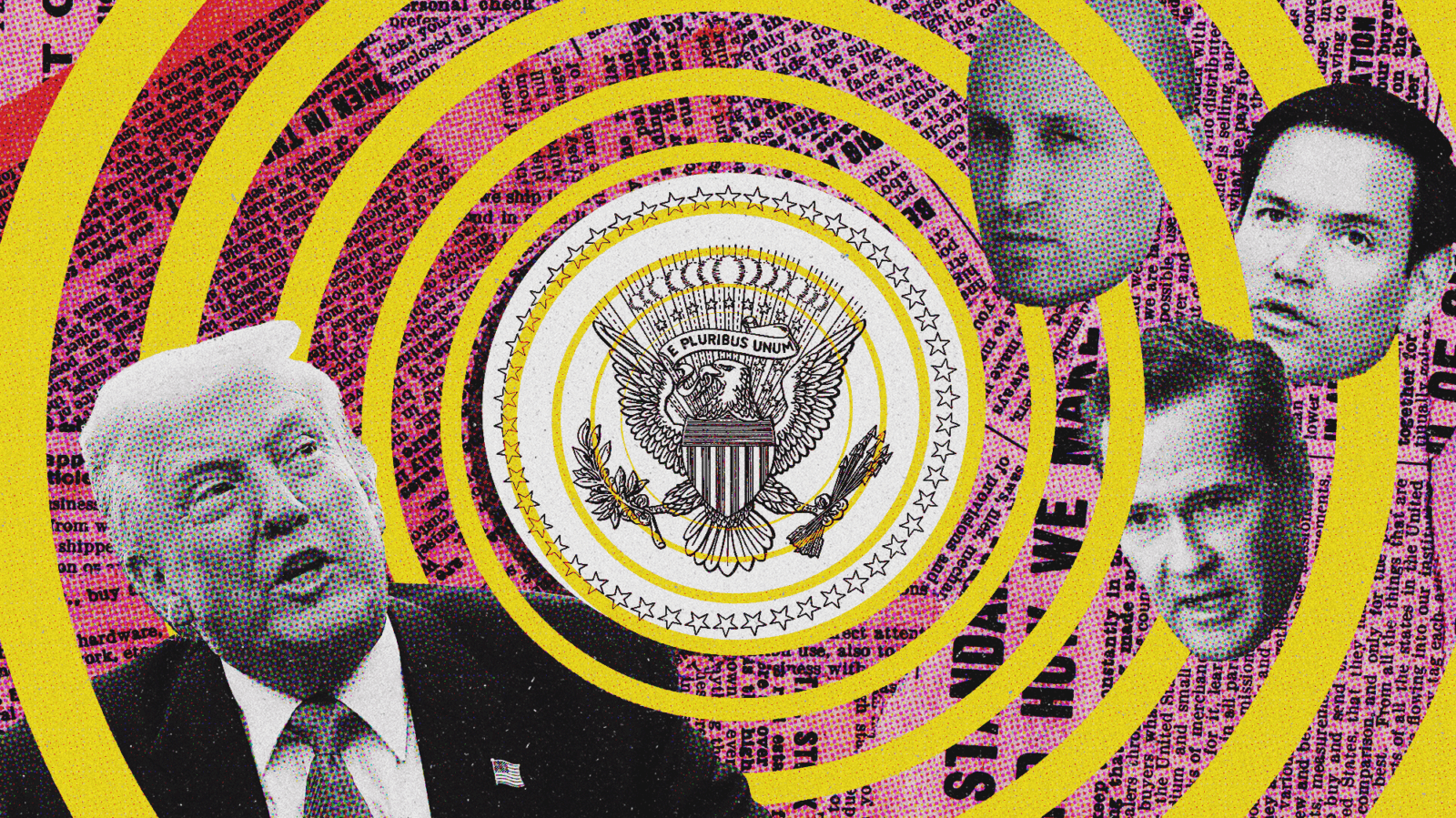
Trump NSC News
Note: This tracker was last updated July 21, 2025.
Trump’s NSC, Explained
How Appointments and Processes Shape America’s Foreign Policy
In early May, President Donald Trump moved Secretary of State Marco Rubio into the role of national security adviser. Rubio is only the second individual in American history to hold the two titles simultaneously, the first being Henry Kissinger.
The two jobs are very, very different. The secretary of state serves as America’s top diplomat, jetting across the world and running a massive government agency, with its network of embassies and consulates worldwide. It’s not yet clear how Rubio, as acting national security adviser, will also convene consultations at the White House for immediate crises, let alone plan over the horizon for long-term concerns that will affect the nation. Who will be by the president’s side in his day-to-day dealings?
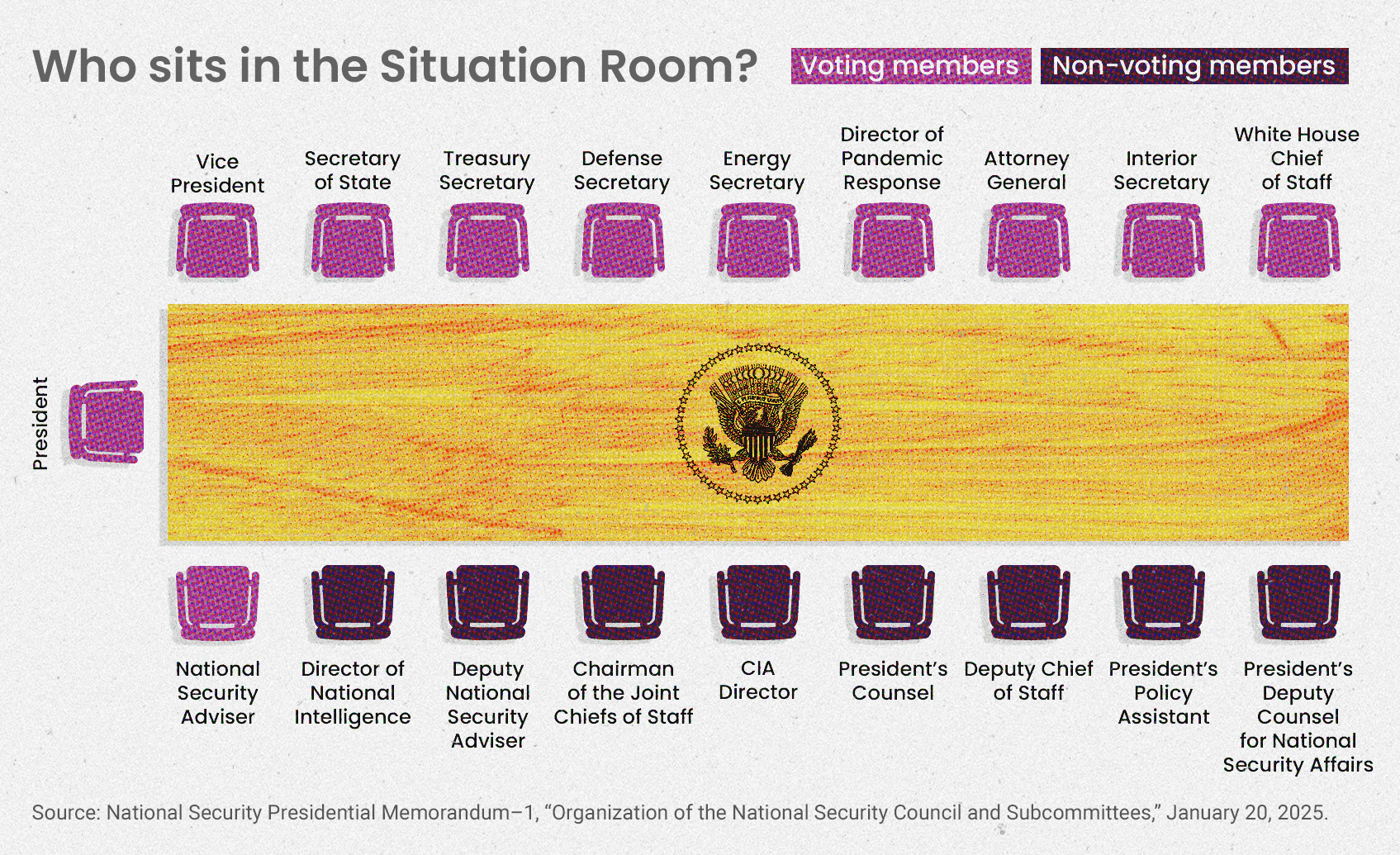
All of this national security chaos brings us back to first-order questions of how the bureaucracy operates, how its personalities and structures determine policy.
The assistant to the president for national security affairs, more commonly called the national security adviser, oversees a group of political appointees, area experts, and career officials seconded from other government agencies who constitute the National Security Council (NSC). Top aides work out of the White House with hundreds more next door in the Eisenhower Executive Office Building. The National Security Council, in theory, is underpinned by strict processes and hierarchies, which stands in contrast to a president who tends to govern by instinct.
The National Security Council was established with the passage of the 1947 National Security Act. Signed into law by Harry S. Truman, the act mandated a dramatic overhaul of the executive branch to accommodate a new, expansive definition of security that had taken hold during the Second World War and early Cold War. These events had impressed on lawmakers’ need for a more centralized and better coordinated national security establishment.
Less defined, however, was the role that the NSC would play in US foreign policy. Conceived initially to serve as an advisory board for the president, the NSC has, over the decades, expanded in size –– from 10–15 staffers to around 400 at its peak –– and its role in foreign affairs has in large part, been freely shaped and reshaped by the president.
The old Washington adage that personnel is policy reigns supreme. These are not nameless, faceless bureaucrats but policy entrepreneurs who brief the president on emerging crises and attend his meetings with world leaders.
That’s why the Institute for Global Affairs’ Independent America program has created a resource that maps the people advising the president on the day’s most important national security questions. The deeply researched biographies, featuring each adviser’s books and signature publications, will be updated as time goes on and as new staff joins the administration. We hope that it serves to inform the general public and insiders alike about how American foreign policy really works.
What We Know About Trump’s NSC
The National Security Council in Trump’s second term represents much continuity with the first on big-picture issues, including how the United States will address threats from China and Russia. Staff are responsible for producing the president’s National Security Strategy (NSS), a document issued once a term that guides the government’s approach to urgent geopolitical concerns and competitors like China and Russia. The White House’s larger vision on global issues is likely to build on the 2017 National Security Strategy, patched in with recently published executive orders and pronouncements. One of that strategy’s pillars, “Preserve Peace Through Strength,” has already figured strongly into the president’s rhetoric and policies.
For all the significance of the National Security Council, its public-facing work tends to be limited. NSC leaders speak to the media, participate in policy forums, and serve as diplomats abroad amid world crises, but the bulk of its staffers are generally quiet players. There is no published organizational chart of the NSC. Neither the national security adviser nor other personnel require Senate approval. Though public officials are legally required to preserve their documents, White House files are not subject to the Freedom of Information Act. It’s not possible to request relevant documents in real time. Yet the staff’s influence can be felt on policy decisions.
The NSC can refer to a few distinct bodies. At the highest level is the National Security Council that convenes with the president as its chair, which is composed of cabinet-level officials and senior staffers that meet when the president seeks them out. Below that is the Principals Committee, which is chaired by the national security adviser and meets with many of the same cabinet-level officials. Then there is the Deputies Committee, where the deputy secretaries and deputy chiefs from the agencies in question meet. One level down is the Policy Coordination Committees, called the Interagency Policy Committees in other administrations, where assistant secretaries convene with senior NSC personnel, who hold functional or regional roles, to hammer out more specific policy issues. And between all of those distinct committees are the National Security Council staffers. Even as Senate-approved appointees from key cabinet departments huddle to make decisions, it is the president who is the ultimate decision-maker.
Mike Waltz, Trump’s first national security adviser of his second term, brought onto the NSC staffers from his congressional office alongside GOP committee staff and alumni from the previous Trump term. Under Waltz, the deputy national security adviser was Alex Wong, a Republican foreign policy hand and Asia specialist who worked on North Korea policy in Trump’s first term and previously served on the staff of Sen. Tom Cotton’s office. Ricky Gill, an energy specialist who worked in the State Department, oversees South and Central Asia. Eric Trager, a longtime senior aide in the Senate and an Egypt expert, directs the Middle East file, and has been traveling the region with Special Presidential Envoy Steven Witkoff. Ivan Kanapathy, a former Marine officer, returns to a more senior role running Asia policy. Political scientist Andrew Peek runs European affairs. Sebastian Gorka, the controversial far-right pundit and firebrand personality, returns to the Trump White House focused on homeland security and terrorism. James Hewitt, a former aide to Waltz in the House, manages strategic communications. Alexei Bulazel, a tech expert who served in the past administration, runs cyber policy. Kevin Harrington, a former Trump official who most recently worked as managing director of Thiel Macro LLC, will be tasked with adding updates to the 2017 strategy. Below, you can find in-depth bios of these individuals and more.
Where there haven’t been appointments — the NSC’s directorate for Africa or for global health, for example — shows where the president’s foreign policy priorities stand.
With Waltz tapped to be ambassador to the United Nations, it’s not yet clear who will remain in their posts or be shuffled elsewhere.
How the Trump 47 NSC May Be Different
One major change in the Trump White House, according to National Security Presidential Memorandum-1, is the breaking down of barriers between the National Security Council and the Homeland Security Council. This appears to build on Russell Vought’s Project 2025 recommendation “to consolidate the functions” of both bodies. In practice, this means that the role of the homeland security adviser — Stephen Miller, who is also the White House’s deputy chief of staff — has been elevated, especially on issues like immigration, cyber, and counterterror. He’s now seen as a top contender to serve as the next national security adviser.
Initial indicators suggest that working levels of the NSC will be empowered. “It will be critical that engagement at the Assistant Secretary and Deputy Secretary levels are prioritized because policy decisions may be made at the Assistant Secretary and Deputy Secretary levels more frequently,” the law firm Akin Gump has advised its clients.
There are many historical models for the national security adviser. In Washington, a mythology surrounds Brent Scowcroft, the Air Force general who served in the White House under Presidents Gerald Ford and George H.W. Bush. He reformed the National Security Council into an evenhanded coordinator of the bureaucracy, where deliberation among experts and policy leaders ostensibly gives the president not recommendations but options. On the other hand, Henry Kissinger, who served Ford and Richard Nixon, concentrated power in the role and focused on delivering strong recommendations. For Kissinger, the national security adviser was a power player unto himself, and the centralization of foreign policymaking authority in the White House has steadily grown since.
Four national security advisers passed through the doors of the first Trump White House, and each brought a different approach and style. Michael Flynn, the Army general, only lasted 22 days, resigning after undisclosed contacts with the Russian ambassador. Keith Kellogg filled in in an acting capacity for a week. Then, H.R. McMaster, another Army general who had written a celebrated book called Dereliction of Duty on the failures of Vietnam, served for 13 months and developed the big-picture strategy that largely remains in place. John Bolton, George W. Bush’s ambassador to the United Nations and a hawkish Republican foreign policy luminary, attempted to instill an orderly policy process from April 2018 to September 2019. His deputy Charles Kupperman served in an acting capacity for about a week until Robert O’Brien, an attorney who was Trump’s special presidential envoy for hostage affairs, took over. He printed out the president’s tweets to set the tone for National Security Council meetings.
Each alumnus of the Trump administration would handle the current national security transition in their own way. Bolton, in a recent op-ed, argues that tightening up the bureaucracy and improving the “decision-making process” is the way forward.
Others say you need to focus on what the president wants. “The American people elected Donald Trump. So it’s not your job to try to manipulate Donald Trump into decisions,” McMaster told the Council on Foreign Relations in January. “It’s your job … to be the guardian of his independence of judgment and to provide him with best analysis and multiple options.”
Meet The NSC
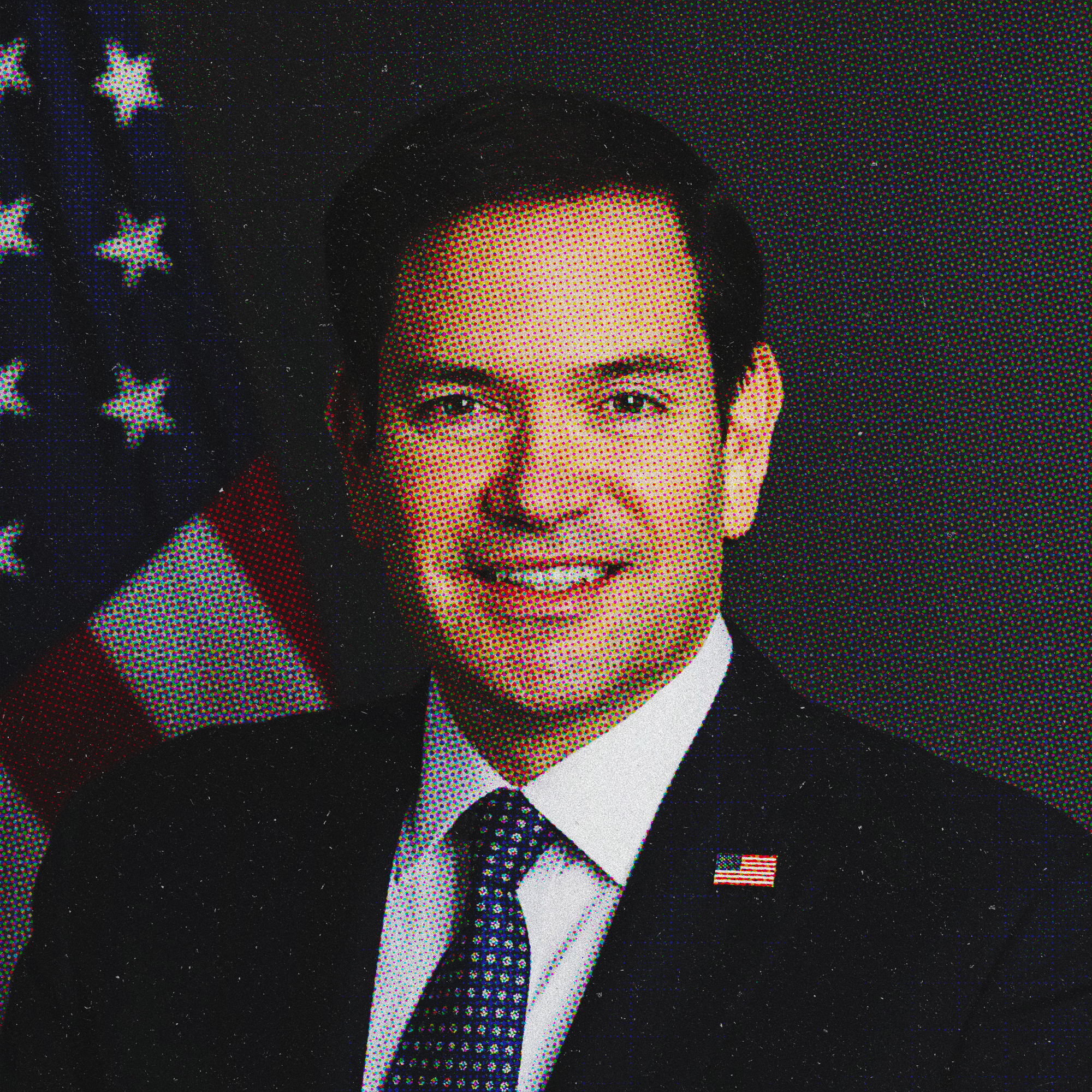
Marco Rubio
National Security Adviser (Acting)
Marco Rubio, a former senior senator from Florida, currently serves as secretary of state. He juggles multiple portfolios in Trump’s second term. In addition to leading both the NSC and the State Department — the first official to do so since Henry Kissinger held both jobs — Rubio is the acting administrator of a greatly diminished U.S. Agency for International Development and the chief archivist at the National Archives and Records Administration.
First elected to the Senate in 2010, Rubio established himself as a key player on issues related to foreign policy and national security. He held powerful positions as vice chair of the Senate Select Committee on Intelligence and as ranking member of the Senate Foreign Relations Committee, where he was the leading Republican on its Subcommittee on Western Hemisphere, Transnational Crime, Civilian Security, Democracy, Human Rights, and Global Women’s Issues.
Born and raised in Miami, Florida, Rubio’s parents were Cuban immigrants, and other members of his family were refugees who had arrived in the United States during the Cuban Revolution. Rubio attended the University of Florida and earned a J.D. from the University of Miami. He spent his early career in state and local politics, during which he held public office as West Miami city commissioner and as speaker of the Florida House of Representatives.
In 2016, Rubio ran for president against Donald Trump but dropped out of the Republican primary when he lost Florida to Trump.
And if America accepts the mantle of global leadership … then our nation will be safer, the world more stable, and our people more prosperous.– Marco Rubio formally announces his 2016 presidential campaign on April 13, 2015, at the Freedom Tower in Miami, Florida
The interest of American foreign policy is to further the national interest of the United States of America … And I think that was lost at the end of the Cold War, because we were the only power in the world, and so we assumed this responsibility of sort of becoming the global government in many cases, trying to solve every problem.– Marco Rubio speaks with Megyn Kelly of The Megyn Kelly Show on January 30, 2025, at the Harry S. Truman building in Washington, D.C.
Selected reading:
- Marco Rubio, “Industrial Policy, Right and Wrong,” National Affairs, Spring 2025.
- Marco Rubio, “The U.S. Is Enhancing American Security Through Caribbean Cooperation,” Miami Herald, March 29, 2025.
- Marco Rubio, “An Americas First Foreign Policy,” The Wall Street Journal, January 30, 2025.
- Marco Rubio, “Beijing Set Out to Destroy U.S. Economic Supremacy. It’s Nearing Its Target,” The Washington Post, September 9, 2024.
- Marco Rubio, “President Biden’s Misguided Policy Toward the Houthis Hurts Americans,” National Review, June 27, 2024.
- Marco Rubio, “What’s Happening to Israel Matters to All of Us,” National Review, May 6, 2024.
- Marco Rubio, “TikTok Parent Company Poses a National Security Threat,” Newsweek, April 3, 2024.
- Marco Rubio, “Restoring America’s Strength: My Vision for U.S. Foreign Policy,” Foreign Affairs, September 1, 2015.
- Marco Rubio, “Obama’s Faustian Bargain with Cuba,” The New York Times, July 8, 2015.
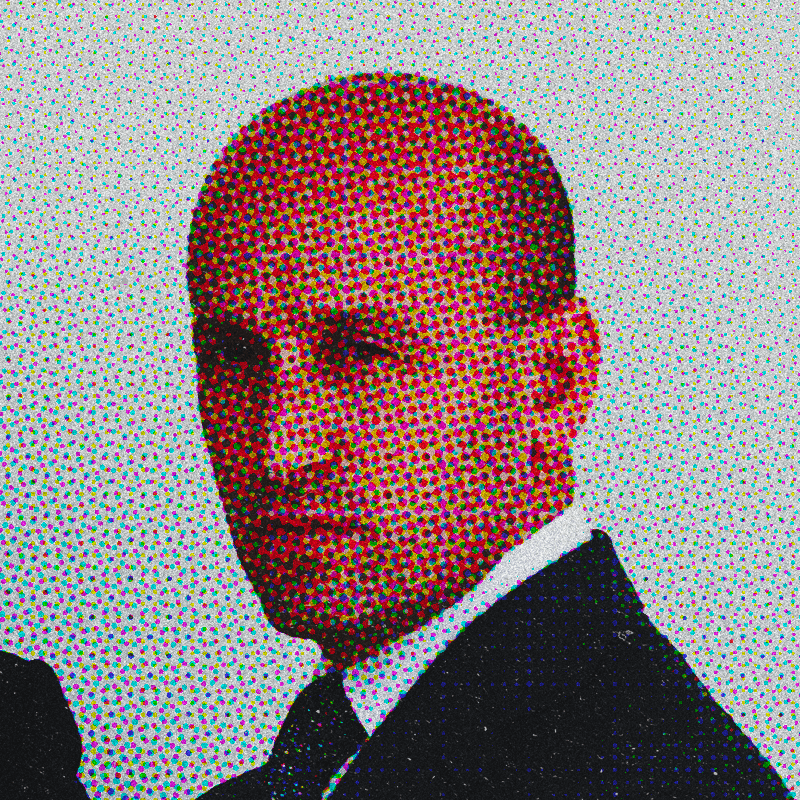
Stephen Miller
Homeland Security Adviser & White House Deputy Chief of Staff
Stephen Miller, a close confidant of Donald Trump, worked as a senior policy adviser and top speechwriter in the first Trump White House. Miller’s relationship with Trump dates to at least 2016, when he was a major player on the campaign trail. He is credited with shaping the president’s hard-line immigration policies and is at the top of Trump’s short list to assume the role of national security adviser from Marco Rubio.
In 2021, Miller co-founded America First Legal, which he calls the right’s “long-awaited answer to the ACLU.”
Miller came into Trump’s orbit as an aide to then-Sen. Jeff Sessions (R-AL), who would later be tapped to serve as Trump’s first attorney general. He had previously worked as press secretary for Rep. Michele Bachmann (R-MN) and was the communications director for Rep. John Shadegg (R-AZ). He made his first national appearances on conservative talk shows when he was a student at Duke University.
The threat to democracy, indeed the existential threat to democracy, is the unelected bureaucracy of lifetime-tenured civil servants who believe they answer to no one, who believes [sic] they can do whatever they want without consequence, who believes they can set their own agenda no matter what Americans vote for.– Stephen Miller briefs members of the media on February 20, 2025, at the White House
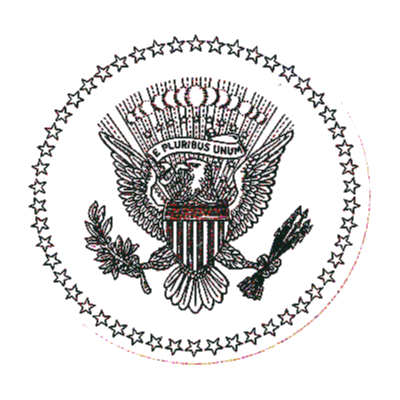
Robert Gabriel
Deputy National Security Adviser
Robert Gabriel works as a deputy national security adviser and as an assistant to the president for policy. He works closely with Chief of Staff Susie Wiles as her “main consigliere,” according to Politico. During the 2024 presidential campaign, he served as her assistant. From 2021 and 2024, he managed Gabriel Strategies LLC, a strategy consulting firm that was hired by Trump PACs.
During Trump’s first term, Gabriel worked as a special assistant to Stephen Miller and later as a speechwriter for President Trump. Gabriel worked for a stint as a producer for the Ingraham Angle on Fox News and later returned to an administration job. He worked on the 2016 presidential campaign as a policy adviser to Trump’s national policy director Stephen Miller.

Andrew Baker
Deputy National Security Adviser
Andrew Baker is the national security adviser to Vice President J.D. Vance, and in May, he also took on a new role at the NSC. Baker joined the White House from Vance’s Senate office, where he had worked since 2023. Baker has played an important role in shaping Vance’s foreign policy, according to Politico, and was his point person for coordinating US strikes in Yemen in the now-notorious Signal chat
Baker previously worked as a foreign service officer with the Department of State (2010-2023). He earned a doctorate in international relations from the University of Oxford and is proficient in Bulgarian, Russian, and Persian. From 2005 to 2010, he lectured at Oxford’s Christ Church College, the University of Buckingham, and the University of Hertfordshire.
The United States pursued her own defensive ‘glacis’ after the [Second World] war, with an extraordinary singlemindedness, and there were to be numerous instances of American informal imperialism (though these never amounted to anything comprehensive or coherent). There is much in the observation that ‘Americans in general may have held anti-colonial sentiments, but they did not believe in precipitous decolonization:’ Lord, make me chaste – but not yet.– Andy Baker in “Constructing a Post-War Order: The Rise of US Hegemony and the Origins of the Cold War”
SELECTED READING:
- Andrew Collison Baker, Constructing a Post-War Order: The Rise of US Hegemony and the Origins of the Cold War (I.B. Tauris, 2011).

Charles McLaughlin
Senior Director for European and Russian Affairs
Charles McLaughlin replaced Andrew Peek as senior director for Europe after the Trump administration restructured the NSC in spring 2025. McLaughlin is seconded to the NSC from the National Defense University, where he has served as a professor of practice since 2021.
McLaughlin worked in the first Trump administration as a director of strategic planning at the NSC (2018-2020). He also served as as a senior adviser at the State Department’s Office of Policy Planning (2020-2021), at the Overseas Private Investment Corporation, which has since been renamed the International Development Finance Corporation (2017-2018), and in the Office of the Undersecretary of Defense for Innovation (2016-2017).
McLaughlin retired from the Army in 2016 as a colonel, after 10 years of active-duty service and 19 years in the reserves. He served in the special forces, as a foreign area officer, and in the Office of the Joint Chiefs of Staff. McLaughlin was a senior executive at Bridgewater Associates (2011-2013) and has also worked at firms including Censeo Consulting Group, Accenture, Innosight, and McKinsey & Company.
McLaughlin is a lecturer at Hillsdale College’s Van Andel Graduate School of Government, where he teaches grand strategy. He was recently a visiting fellow at Catholic University. He is currently pursuing a doctorate in statecraft and national security at the Institute for World Politics. McLaughlin is a life member of the Council on Foreign Relations, Knight of Malta, co-founder and director of the Edward E. Mixon Second Dragoons Foundation, and board member of the Harvard Veterans Alumni Organization.
It seems to me that the Declaration of Independence says my country’s duty is to preserve my rights and the rights of my fellow citizens, and there are no other duties.– Comment by Charles McLaughlin at Dr. Joseph Capizzi’s talk on just war at the Christianity & National Security Conference 2022.
The United States is committed to assist fragile states to prevent threats to the homeland. And those threats can be direct and indirect. We’re talking about the threats of radical extremism and terrorism, the spread of global pandemics, the fragility that incubates transnational crime and stifles economic growth; all of these things are potential threats to us… One of the ways that we intend to stay engaged is through the use of the private sector and that comes not only with development finance…but also working very closely with our other agencies. I want to be clear…this does not leave behind the outstanding professionals at USAID, State, and at other agencies.– Charles McLaughlin in CSIS’s “Global Development Forum 2018: Private Enterprise in Fragile and Post-Conflict States,” April 19, 2018.
SELECTED READING:
- Charles McLaughlin, Heather Kulp, Sarah Alexander, and Lt. General William Mayville with host Seth Jones, “Global Development Forum 2018: Private Enterprise in Fragile and Post-Conflict States,” CSIS, April 19, 2018.

Adam Jones
Senior Director for Intelligence
Adam Jones replaced Brian Walsh as senior director for intelligence after Walsh was dismissed in April 2025. Jones is a longtime intelligence professional, who served as an interlocutor between President Trump’s first transition team and the intelligence community. In 2017, he was detailed as chief of staff and senior policy adviser to the president’s homeland security and counterterrorism adviser.
Most recently, Jones worked at the National Counterterrorism Center as the Detroit domestic representative and served as chief of staff to the acting principal deputy director of national intelligence. He was a 2019 Recanati-Kaplan Intelligence Fellow at Harvard’s Belfer Center for Science and International Affairs.
Jones began his career in the intelligence community in 2006 as a speechwriter to the director and principal deputy director of national intelligence. He has served on the staff of the president’s daily brief, the National Intelligence Council, the National Counterproliferation Center, the US Commission on the Prevention of WMD Proliferation and Terrorism, and as a targeter in the CIA’s Directorate of Operations.
Several people, including US citizens and Iranians, have been arrested or indicted in the past five years for seeking to build operational capability against US-based organizations and people. Protecting against such threats is even more important now…– Adam Jones discusses counterterrorism efforts following the US assassination of Iranian Revolutionary Guard Commander Qasem Soleimani in “View from the National Counterterrorism Center: The Terrorist Threat at Home and Abroad.”
SELECTED READING:
- Adam Jones, “View from the National Counterterrorism Center: The Terrorist Threat at Home and Abroad,” in Michigan Police Chiefs, Summer 2022.

Michael Jensen
Senior Director for the Western Hemisphere
Michael Jensen is a retired Air Force Lieutenant Colonel, who had originally been tapped to serve as the Trump administration’s assistant secretary of defense for special operations and low-intensity conflict, before his nomination was withdrawn in May 2025.
During his 20-year military career, Jensen held leadership roles in the special operations community, serving as commander of the 26th Special Tactics Squadron and deputy commander of the 724th Special Tactics Group. Jensen was also the lead strategist for the Pentagon’s Checkmate Division, a military strategy group that advises the secretary of defense.
After his retirement from the military, Jensen was named chief strategy officer at SkyRunner, LLC, a defense contractor that manufactures flying ATVs, where he led its global growth strategy. In 2013, Jensen wrote his master’s thesis at the Naval Postgraduate School on the use case for light-sport aircraft, like SkyRunner’s product, for special forces infiltration and extraction.
The Special Operations Aerial Mobility Vehicle is built to swarm. Its high mobility provides an excellent platform for a networked force to maintain individual autonomy while coordinating complex pulsing operations…– Michael Jensen in “Special Operations Aerial Mobility Vehicle Training Syllabus.”
SELECTED READING:
- Michael Jensen, “Special Operations Aerial Mobility Vehicle Training Syllabus,” (MS Thesis, Naval Postgraduate School, 2013).

Wayne Wall
Senior Director for the Middle East and Africa
Wayne Wall replaced Eric Trager as senior director for the Middle East after the Trump administration restructured the NSC in spring 2025. Wall is a retired US Army officer, with 23 years of active duty service, including 14 years as a Middle East specialist. Prior to joining the NSC, Wall was an executive with the Defense Intelligence Agency and worked at US Central Command.

Alexei Bulazel
Senior Director for Cyber
Alexei Bulazel served in the first Trump administration as the NSC director for cyber policy (2020-2021). He was the NYU Tandon School of Engineering’s hacker in residence from 2019 to 2020 and most recently held a nonresident fellowship at the Foundation for American Innovation, where he focused on national security, technology policy, cybersecurity, and artificial intelligence.
In the private sector, Alexei worked as a senior security researcher at the cybersecurity firm River Loop Security and led security engineering work at Oracle and Apple. He is the author of several peer-reviewed articles on computer security and frequently contributes to public discussions on issues at the intersection of cyber and international security.
I cannot stress how important that is that the folks who are enabling America’s cyber capabilities are engaged, are being paid for their work, feel a sense of worth feel like they’re contributing to mission.– Alexei Bulazelin “NSPM-13 and the Future of Cyber Warfare,” Hudson Institute
SELECTED READING:
- Alexei Bulazel, John Catsimatidis, and Rita Cosby, “Possible Cyber Attack Coming from China against US Phone Companies,” Cats & Cosby, WABC Radio, December 26, 2024.
- Alexei Bulazel, JD Work, Joshua Steinman, and Ezra Cohen, “NSPM-13 and the Future of Cyber Warfare,” filmed May 5, 2022. Hudson Institute.
- Alexei Bulazel, Sophia d’Antoine, Perri Adams, and Dave Aitel, “The Risks of Huawei Risk Mitigation,” Lawfare, April 24, 2019.

Catherine Bellah Keller
Executive Secretary
Catherine Bellah Keller was the Commerce Department’s deputy general counsel for strategic initiatives (2017-2018) before moving to the White House, where she served as the deputy staff secretary and deputy general counsel (2018-2020). In 2024, Keller was appointed by Gov. Greg Abbott to serve on the Governing Board of the Texas Department of Information Resources.
Keller previously worked at the global law and investment firms Charles & Potomac Capital, Plumaven, Dimensional Fund Advisors, and Latham & Watkins LLP. She holds a J.D. from the University of Texas Law School and clerked for Judge William Garwood on the Fifth Circuit of Appeals.

Ivan Kanapathy
Senior Director for Asia
Ivan Kanapathy served in the first Trump White House as NSC director for China, Taiwan, and Mongolia (2018-2019) and deputy senior director for Asian Affairs (2020-2021). Before his return to government, Kanapathy worked at Beacon Global Strategies, where he supported the firm’s Indo-Pacific Practice and led its Taiwan Analysis Center (2021-2025). He was also a senior associate at the Center for Strategic and International Studies and a senior nonresident fellow at the Center for Strategic and Budgetary Assessments. Kanapathy is a former Marine Corps officer who served as a military attaché to the American Institute in Taiwan.
Kanapathy authored two chapters in The Boiling Moat: Urgent Steps to Defend Taiwan (Hoover Institution Press, 2024), which presents a guide for the United States and its allies on countering China’s aggression toward Taiwan.
[T]he Taiwanese military must prioritize denying a [Chinese military] lodgment above all else. Taiwan should be prepared to endure missile and bomb strikes, an enforced embargo, cyberattacks on critical infrastructure, disinformation campaigns, and other associated threats for up to two months while denying a landing operation.– Ivan Kanapathy in The Boiling Moat: Urgent Steps to Defend Taiwan
SELECTED READING:
- Ivan Kanapathy and Bonny Lin, “Trump’s Indo-Pacific Strategy: A Conversation with Mr. Ivan Kanapathy,” ChinaPower, Center for Strategic and International Studies, November 22, 2024.
- Ivan Kanapathy and Yin Khvat, “What Two Factors Stand in China’s Way of Invading Taiwan?” Taiwan Talks, TaiwanPlus, September 21, 2024.
- Ivan Kanapathy, “Countering China’s Use of Force,” and “Countering China’s Gray-Zone Activities,” in The Boiling Moat: Urgent Steps to Defend Taiwan (Hoover Institution Press, 2024).
- Ivan Kanapathy, DJ Nordquist, and Daniel B. Pickard, “The Economic Power Play: Examining China’s Coercive Tactics,” filmed October 6, 2023. The Federalist Society.
- Ivan Kanapathy and David Sacks, “What It Will Take to Deter China in the Taiwan Strait,” Foreign Affairs, June 15, 2023.
- Ivan Kanapathy, Rosemary Foot, Christopher Preble, and Lily McElwee, “Chinese Perceptions of America’s Indo-Pacific Strategy,” Center for Strategic and International Studies, May 12, 2022.
- Ivan Kanapathy, “Taiwan Doesn’t Need a Formal U.S. Security Guarantee,” Foreign Policy, April 26, 2022.

James Hewitt
Senior Director for Strategic Communications
James Hewitt worked as communications director and deputy chief of staff to then-Rep. Mike Waltz (2021-2025). During Trump’s first term, Hewitt served in the Environmental Protection Agency as associate administrator for public affairs and press secretary, and in the Department of State as a senior adviser in the Bureau of Global Public Affairs (2017-2021). Before that, he was deputy press secretary for the Republican National Committee and was an associate and senior director at the crisis management PR firm Dezenhall Resources.

Kevin Harrington
Senior Director for Strategic Planning
Kevin Harrington returns as the senior director for strategic planning, a role held in Trump’s first administration and one that is considered one of the most important on the NSC. Harrington is responsible for turning the president’s agenda and priorities into a guiding strategy document. In his previous capacity as senior director, Harrington stressed the importance of close energy ties with Russia and floated a plan to withdraw U.S. forces from the Baltic states.
Prior to his work in government, Kevin studied physics at Stanford and consulted for the university’s Center for International Security and Cooperation on issues concerning national infrastructure and nuclear security. More recently, Kevin was the managing director of Thiel Macro LLC and its predecessor, Clarium Capital.
This very provocative series of missile tests Iran is engaged is are basically a signal that is not taking the JCPOA all that seriously. So we need to take account of that and maybe operate less in the spirit of the agreement as well in response.– Kevin Harrington quoted in Julian Borger, “Lifting Russia Sanctions Would Not Be ‘Smart’, White House Senior Official Says,” The Guardian, February 6, 2017
I think the President is looking at this somewhat realistically and saying, "Russia is a very large country with 7,000 nuclear weapons, give or take, and 11 million barrels a day of oil production. Do you really want to be herding them to a really close relationship with China or is there a way to make this more constructive?”– Kevin Harrington quoted in Patrick Tucker, “Will Trump Repeal Sanctions on Russia? A Conversation with an NSC Planner,” Defense One, February 10, 2017

Micah Thomas Ketchel
Special Assistant to the President & Senior Adviser to the National Security Adviser
Micah Thomas Ketchel was the chief of staff to then-Rep. Mike Waltz (2019-2025). He previously worked as a counsel and policy director at the Republican State Leadership Committee and served as the counsel to the Republican Attorneys General Association. Ketchel holds a J.D. from Florida State University College of Law and has been a member of the Federalist Society since 2009.

Ricky Gill
Senior Director for South and Central Asian Affairs
Ricky Gill served in the first Trump administration as a senior adviser at the State Department’s Bureau of Overseas Building Operations (2017-2020) and later at the NSC as director for Russia and European Energy Security (2020). He previously worked as a policy adviser at TC Energy and was a principal and general counsel at Gill Capital Group.
Raised in California’s Central Valley, Gill ran for Congress in 2012, seeking to represent California’s Ninth Congressional District. He holds a J.D. from the University of California, Berkeley.
I would double down on soft power… This is still a country that people want to gravitate to and move to. It’s why my parents moved to the United States, and we should be proud of that.– Ricky Gill in “Navigating a New Era of Economic Statecraft,” World Trade Center Utah
SELECTED READING:
- Ricky Gill, Liza Tobin, Eric Levesque, and Damien Ma, “Navigating a New Era of Economic Statecraft,” filmed June 9, 2022. World Trade Center Utah.
- Ricky Gill and Sam Buchan, “Reviving the MidCat Natural Gas Pipeline Is Critical to Answering Russian Aggression,” RealClear Energy, February 22, 2022.
- Ricky Gill, “Constructing Resiliency,” State Magazine, October 2019.

Sebastian Gorka
Deputy Assistant to the President & Senior Director for Counterterrorism
Sebastian Gorka is a conservative pundit specializing in counterterrorism. He was appointed as deputy assistant to the president early in Trump’s first term but departed the administration in 2017 when he was unable to receive a security clearance. Prior to becoming a naturalized American citizen, Gorka held government jobs in Hungary’s Department of Defense.
Gorka is a former Fox News contributor. He hosted “AMERICA FIRST” on the Salem Radio Network and “The Gorka Reality Check” on Newsmax TV. From 2014 to 2017, he worked as a national security editor at Breitbart. Gorka holds a Ph.D. in political science from Corvinus University of Budapest.
The only real strategic threat we face is China. The United States and the West have facilitated this threat for more than forty years. Henry Kissinger’s opening to China in the early 1970s and our support for China’s World Trade Organization membership and “Most Favored Nation” status have made a China an economic competitor that not only wishes to be a military competitor, but to displace us as the world’s leading superpower. This isn’t fiction. This is not classified. Any one of you, my dear readers, can go online and look up the phrase “One Belt, One Road.” It is the Chinese government’s plan to displace America and become a global hegemon by the 100th anniversary of the Chinese Communist Revolution in 2049.– Sebastian Gorka in The War for America’s Soul
SELECTED READING:
- Sebastian Gorka, “Surgical Strength—How President Trump Kept Us Safe and Can Prevent WWIII,” Breitbart, November 4, 2024.
- Sebastian Gorka, “The New MAGA Manifesto,” Breitbart, May 20, 2024.
- Sebastian Gorka, “Biden vs. Trump; War vs. Peace,” Breitbart, October 14, 2023.
- Sebastian Gorka, The War for America’s Soul (Regnery, 2019).
- Sebastian Gorka, Why We Fight: Defeating America’s Enemies — With No Apologies (Regnery, 2018).
- Sebastian Gorka, Defeating Jihad: The Winnable War (Regnery, 2016).

Walker Barrett
Senior Director for Defense
Walker Barrett recently served as a professional staff member on the House Armed Services Committee (2023-2025). Prior to that, he worked in Michael Waltz’s congressional office as the representative’s deputy chief of staff. Barrett has also worked on the Hill as a legislative director for Rep. Jeff Denham (R-CA), an assistant in the House Transportation and Infrastructure Committee, and as a legislative assistant and then director for Rep. Tim Rice (R-SC).
Trump 2.0 NSC Alumni
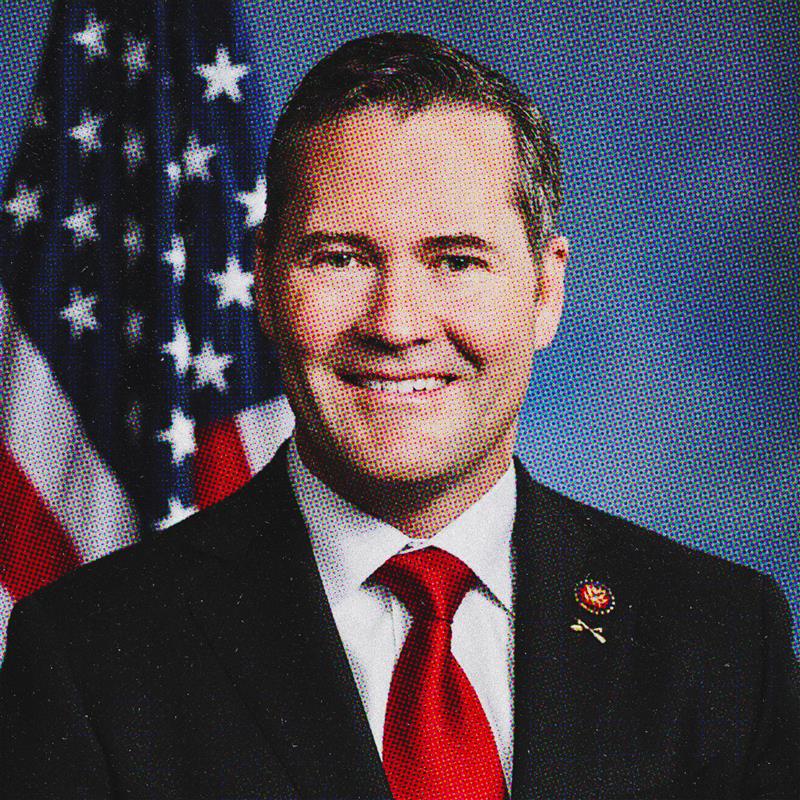
Michael Waltz
National Security Adviser
Michael Waltz is a former Republican U.S. representative (FL-06), frequent contributor on Fox News, and 29-year veteran of the U.S. Army and National Guard (1996-2025). He retired as a colonel in the Army Special Forces and became the first Green Beret elected to Congress. As a member of the House of Representatives (2019-2025), Waltz had several different committee assignments, including the House Armed Services and Foreign Affairs Committees, as well as the Select Committee on Intelligence and the House China Task Force.
Prior to his election to Congress, Waltz co-founded the international consulting firm Askari Associates and was the CEO of the defense and intelligence contractor Metis Solutions, which provided the Department of Defense with financial analysis and specialized training, until it was acquired by Pacific Architects and Engineers in 2020 for $92 million. Earlier in his career, Waltz advised former Vice President Dick Cheney and Secretaries of Defense Donald Rumsfeld and Robert Gates on counterterrorism policy.
Waltz has held fellowships at the Foundation for Defense of Democracies and New America. He is the author of the 2014 memoir Warrior Diplomat and a Christian children’s book entitled Dawn of the BRAVE.
The next president should act urgently to bring the conflicts in Ukraine and the Middle East to a swift conclusion, and finally focus strategic attention where it should be: countering the greater threat from the Chinese Communist Party.– Michael Waltz with Matthew Kroenig in “China Is the Big Winner from Biden’s Foreign Policy,” The Economist
Selected reading:
- Michael Waltz and Matthew Kroenig, “China Is the Big Winner from Biden’s Foreign Policy,” The Economist, November 2, 2024.
- Michael Waltz and Matthew Kroenig, “Rep. Waltz on Leadership and the Future of US Foreign Policy,” filmed October 28, 2024. Atlantic Council.
- Michael Waltz and Mark Kelly, “China’s Sea Power Leaves U.S. Adrift,” The Wall Street Journal, May 22, 2024.
- Michael Waltz, Dawn of the BRAVE (Brave Books, 2022).
- Michael Waltz, Warrior Diplomat: A Green Beret’s Battles from Washington to Afghanistan (Potomac Books, 2014).

Alex Wong
Deputy National Security Adviser
Alex Wong served in the first Trump administration at the Department of State, where he held dual positions as deputy special representative and deputy assistant secretary for North Korea (2017-2021). Prior to this, Wong worked in the office of Sen. Tom Cotton (R-AR) as both a foreign policy adviser and the senator’s legal counsel. His diplomatic and legal experience at the State Department dates to the Iraq War, during which he served as Iraq rule of law adviser.
Wong holds a J.D. from Harvard Law School and clerked for Judge Janice Rogers Brown of the United States Court of Appeals for the District of Columbia Circuit. He also worked at a private law firm, advising Fortune 100 clients on international trade and government investigations. Most recently, Wong was the head of public affairs at Coupang, an e-commerce company, and a senior fellow at the Hudson Institute.
The CCP has chosen to predicate its legitimacy on the diminishment of US interests.– Alex Wong in “Competition with China: Debating the Endgame,” Hudson Institute
SELECTED READING:
- Alex Wong, “Competition with China: Debating the Endgame,” Hudson Institute, October 16, 2023.
- Alex Wong, “Nuclear Deterrence and Arms Control in the Twenty-First Century,” Hudson Institute, May 30, 2023.
- Alex Wong, “Balance in the Indo-Pacific: Defining the U.S. Approach,” Ronald Reagan Institute, July 8, 2022.
- Alex Wong, Jean H. Lee, Ankit Panda, and Patrick M. Cronin, “Kim Jong Un and the Northeast Asian Arms Race,” panel discussion, September 17, 2021. Hudson Institute, Washington, D.C.
- Alex Wong and Kharis Templeman, “Watch This Space: Beijing’s Push to Close Off Taiwan’s International Space and the U.S. Response,” Talks from the Hoover Institution, May 27, 2021.
- Alex Wong, “Pyongyang’s Secret: There Is No Strategy,” RealClear Defense, April 1, 2021.

Ian Bennitt
Special Assistant to the President & Senior Director for Maritime and Industrial Capacity
Ian Bennitt is a former congressional staffer tapped to lead the White House’s new shipbuilding office as its senior director. During his time on the Hill, Ian worked on the House Transportation and Infrastructure Committee as a senior adviser to the Republican chair, and the House Armed Services Committee as staff lead for the Seapower and Projection Forces Subcommittee. Ian has also lobbied on behalf of the firms Adams & Reese LLP, Ball Janik LLP, and Shipbuilders Council of America.
This new office aims to reform procurement, boost demand and remove barriers to US shipbuilders’ competitiveness — giving them the confidence to invest in the industry’s long-term future.– Ian Bennitt quoted in Rana Foroohar, “Why Ships Are the New Chips,” Financial Times, March 23, 2025

Brian McCormack
Chief of Staff to the National Security Adviser
Brian McCormack was the acting executive associate director at the Office of Management and Budget during Trump’s first term (2019-2021). Prior to that, he worked as chief of staff to Secretary of Energy Rick Perry (2017-2019). A longtime energy consultant, McCormack is the co-founder of United Coalition for Advanced Nuclear (UCAN) Power, an organization that champions nuclear energy for both military and civilian purposes. He also served as vice president of political and external affairs at Edison Electric Institute and in the Bush administration as an aide to Vice President Dick Cheney.
Each White House has formal and informal processes, but also centers of gravity with people or offices that punch above their weight and can have an outsize influence on shaping a policy. Understanding these can help you be successful inside an administration and when trying to accomplish things from the outside.– Brian McCormack in “Five Questions with Brian McCormack”

Andrew Peek
Senior Director for European Affairs
Andrew Peek is a political scientist who most recently served as the national security adviser to then-Rep. Mike Waltz. During Trump’s first term, Peek served as deputy assistant secretary for Iraq and Iran (2017-2019) before moving into the White House as the senior director for Europe and Eurasia (2019-2020).
Peek is a former Army Reserve intelligence officer and holds a Ph.D. in international relations from the Johns Hopkins School of Advanced International Studies, where he wrote a dissertation entitled “On the Effective Use of Proxy Warfare” under the direction of Eliot Cohen. He has contributed to Foreign Affairs, The Wall Street Journal, and The New York Observer.
And if Putin wants the war to stop — more importantly, if he wants America’s help in stopping the war — the U.S. should make him pay for it. The most critical items are not the tactical laydown of forces and political mechanisms of sovereignty in the East. Probably some Russian forces will remain in Ukraine under any ceasefire. Probably Ukraine will not consent to ceding territory to Russia. Probably Russia will announce an annexation or liberation of some part of the East, regardless. Those are all tactical issues.– Andrew Peek in “Biden Must Own the Ukraine War’s Endgame,” New York Daily News
SELECTED READING:
- Andrew Peek, “Parliament Diplomacy: A New Kind of Fight with Iran and Its Proxies,” Hoover Institution, March 5, 2024.
- Andrew Peek, “Should History Rethink Paul Bremer’s Role in the Iraq War?” Atlantic Council, May 1, 2023.
- Andrew Peek, “What Would the Middle East Look Like with a Democratic Iran?” New York Sun, April 18, 2023.
- Andrew Peek, “Biden Must Own the Ukraine War’s Endgame,” New York Daily News, June 13, 2022.
- Andrew Peek and Ric Grenell, “U.S. Mistakes Fed Putin’s Ukraine Temptation,” The Wall Street Journal, January 10, 2022.
- Andrew Peek, “On the Effective Use of Proxy Warfare,” Ph.D. diss. Johns Hopkins University, 2021.

Eric Trager
Senior Director for the Middle East and North Africa
Eric Trager is a Middle East specialist who served on Republican staff of the Senate Armed Services Committee (2018-2025), as well as the Senate Foreign Relations Committee under then-chairman Sen. Bob Corker (R-TN). He was also the Esther K. Wagner Fellow at the Washington Institute for Near East Policy (2011-2018), and has been adjunct professor at the University of Michigan since 2015. Trager holds an M.A. in Arabic studies from the American University in Cairo, where he studied while living in Egypt as an Islamic Civilizations Fulbright Fellow, and a Ph.D. from the University of Pennsylvania.
SELECTED READING:
- Eric Trager, “Washington’s Unfocused Decision on Aid to Egypt,” Washington Institute for Near East Policy, August 23, 2017.
- Eric Trager, “The Muslim Brotherhood’s Fatal Mistake,” Foreign Affairs, August 21, 2017.
- Eric Trager, “Stuck with Sisi,” Foreign Affairs, January 24, 2017.
- Eric Trager, Arab Fall: How the Muslim Brotherhood Won and Lost Egypt in 891 Days (Georgetown University Press, 2016).

Brian Hughes
Deputy National Security Adviser for Strategic Communications
Brian Hughes is the NSC spokesperson responsible for shaping the White House’s public affairs strategy on national security. He previously directed the Trump campaign in Florida and served as the spokesperson for President Trump’s transition team. Hughes has been active in Florida politics for much of his career. He was chief of staffchief administrative officer under former Jacksonville Mayor Lenny Curry and was the first communications director for then-Florida Gov. Rick Scott. In 2012, he worked as a consultant for Gov. Ron DeSantis during his first successful congressional campaign.
Some people feel I’m overly aggressive … [A] motorcycle guy who cusses and gets angry.– Brian Hughes quoted in A.G. Gancarski, “The Life of Brian,” Influence Magazine, Spring 2017
Primary Docs
This post is part of Independent America, a research program led out by Jonathan Guyer, which seeks to explore how US foreign policy could better be tailored to new global realities and to the preferences of American voters.
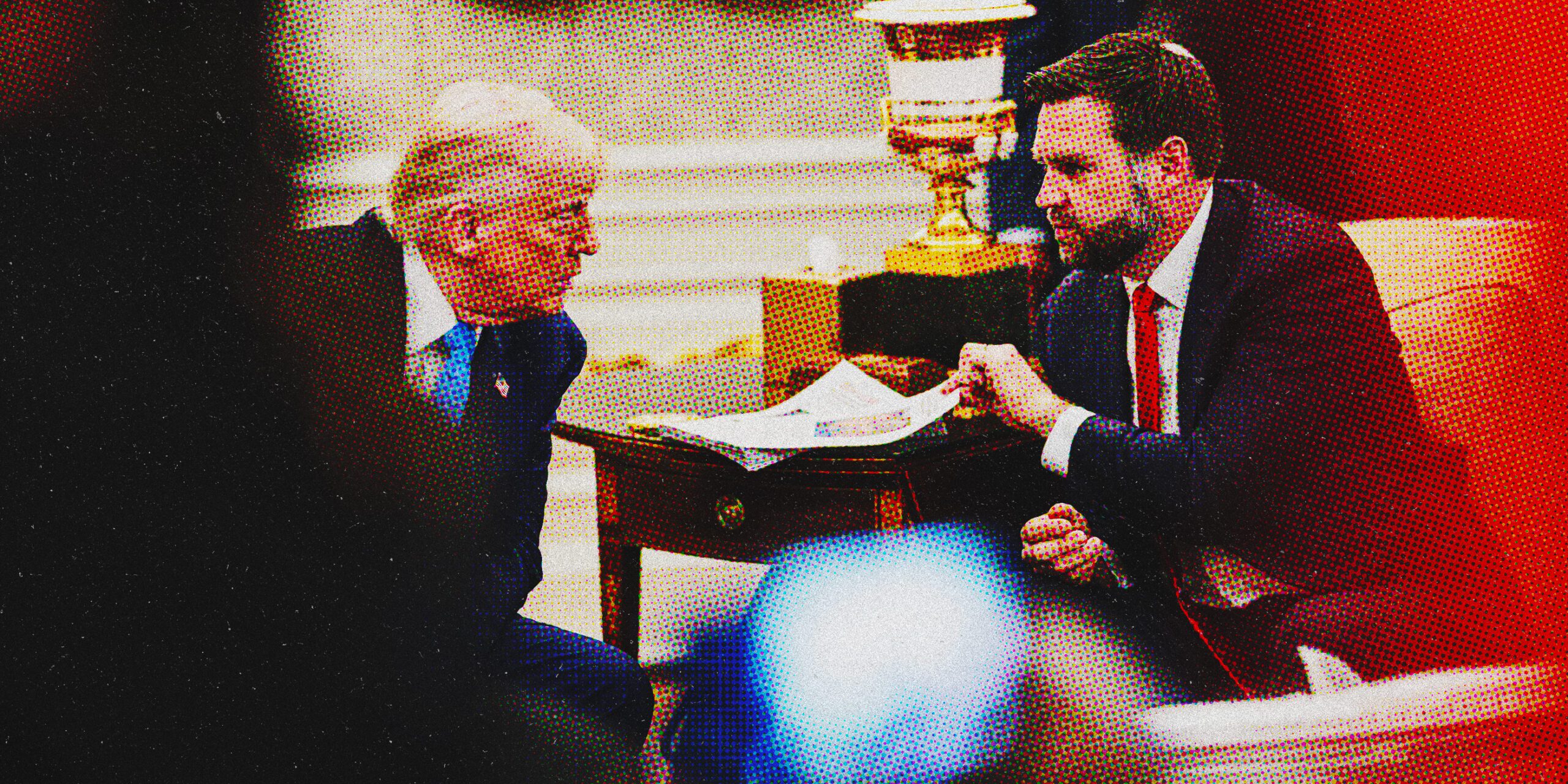
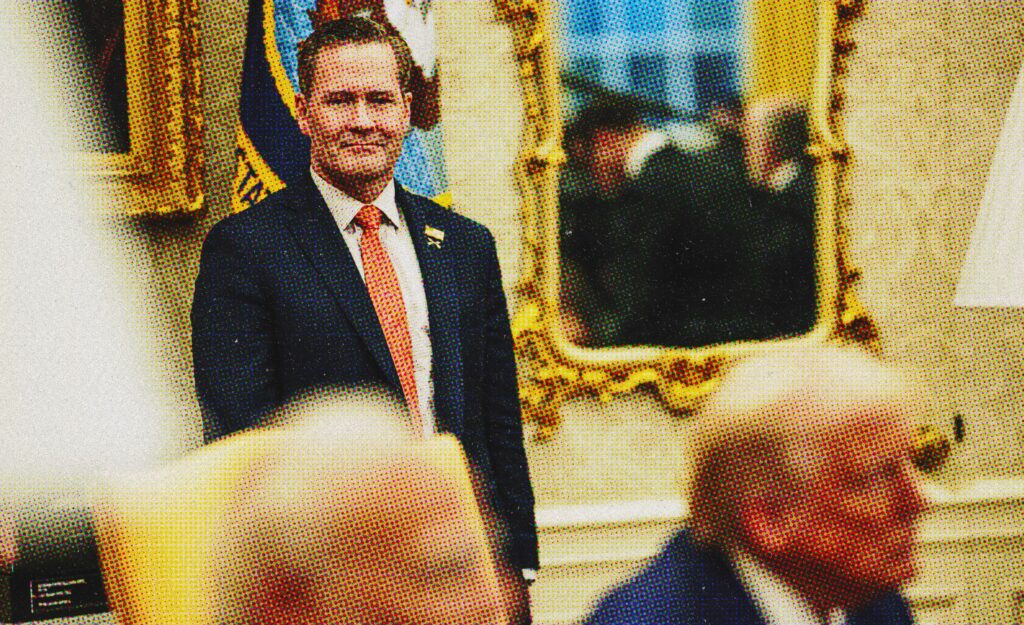
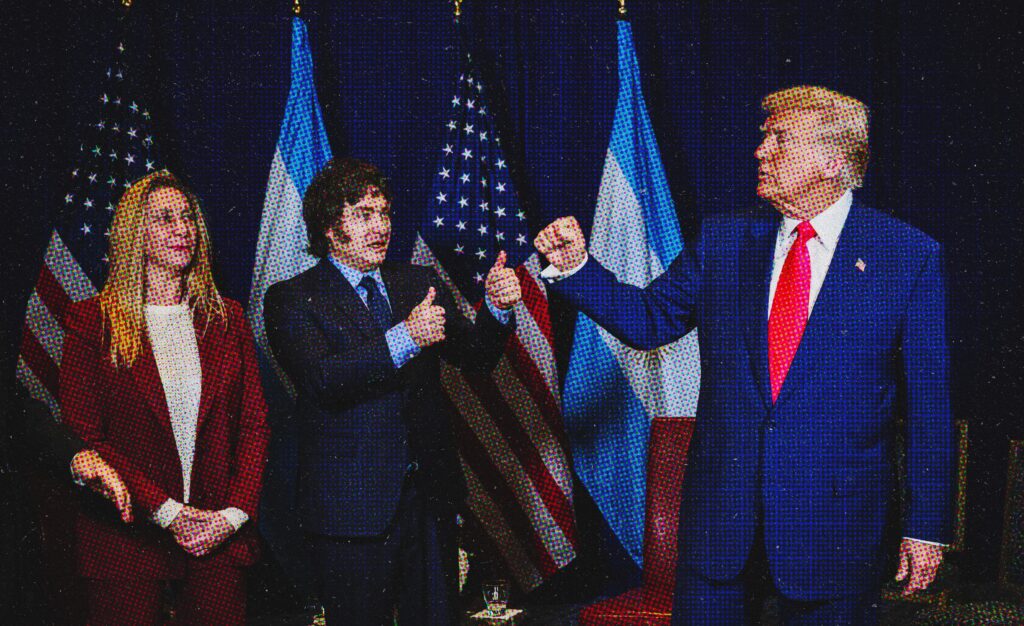
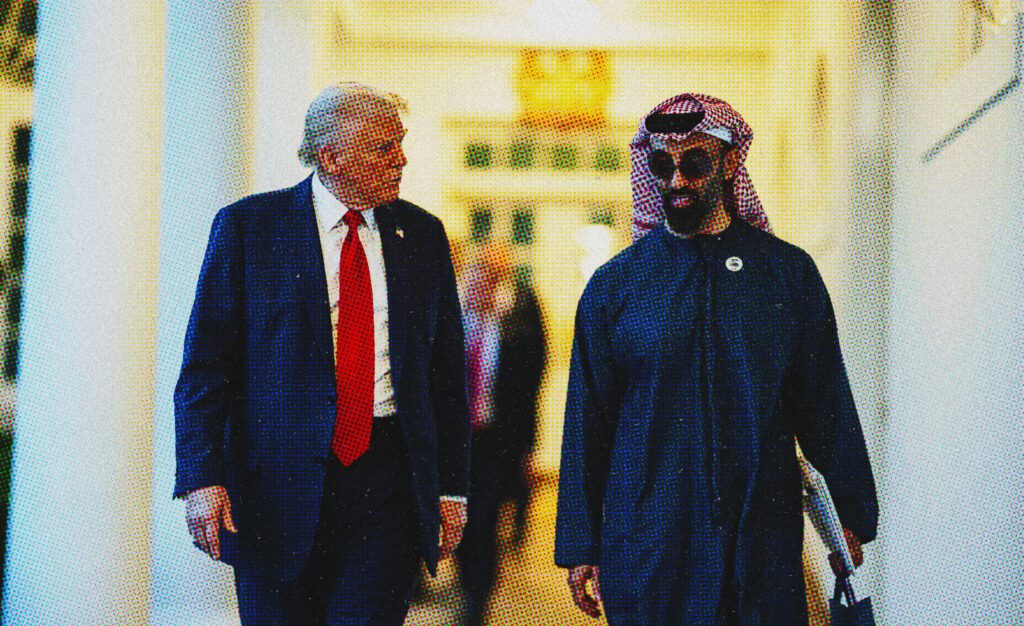

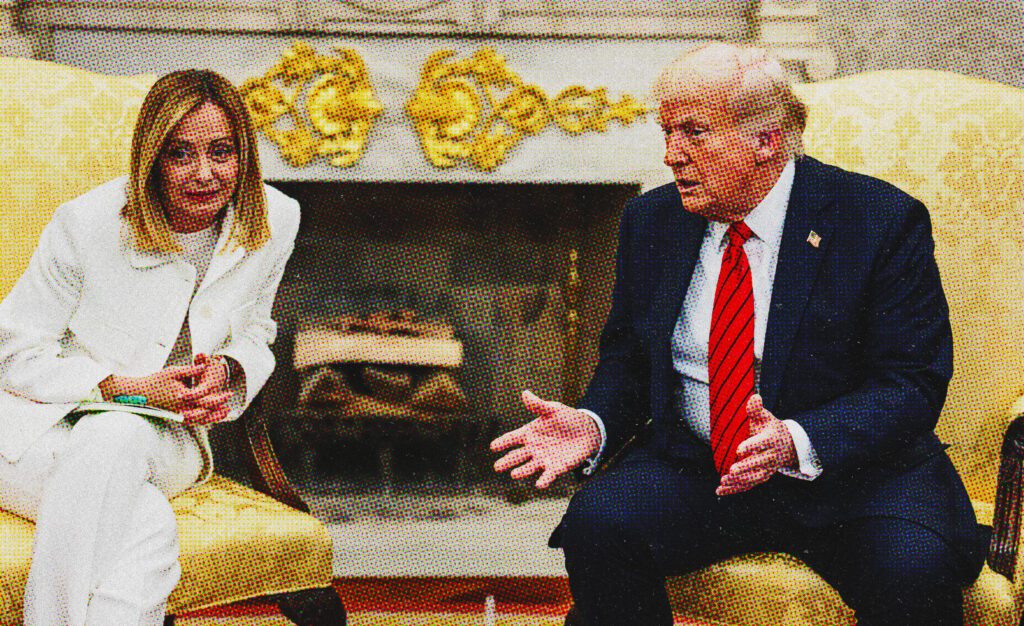
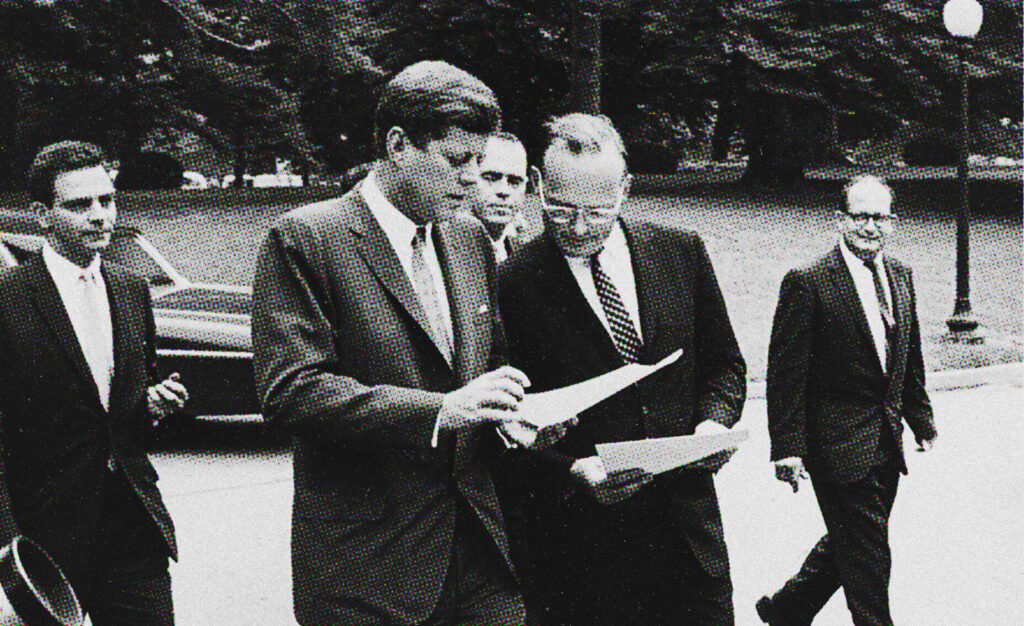
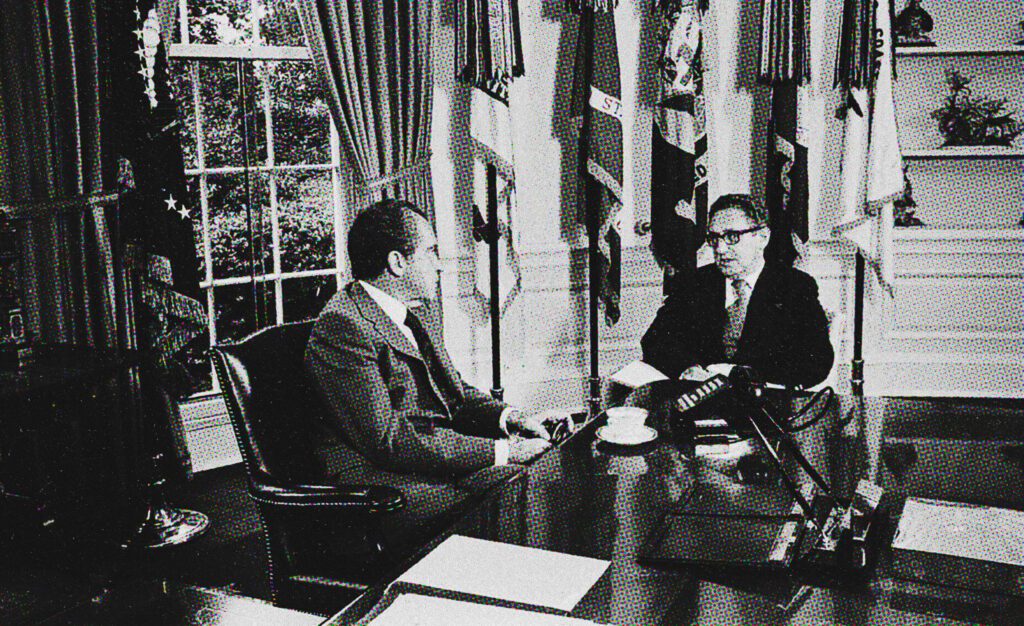
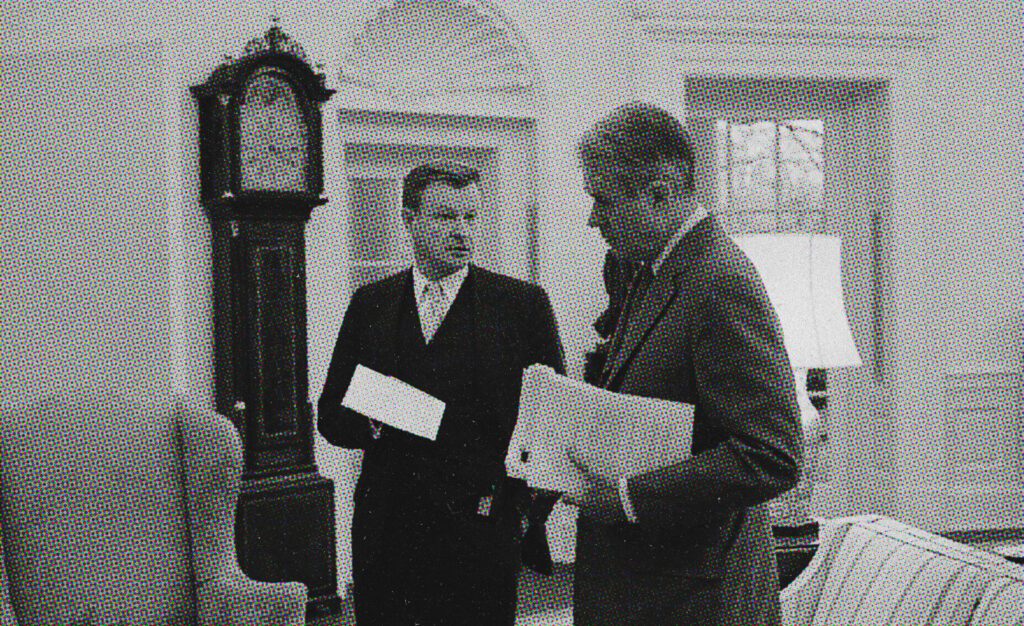
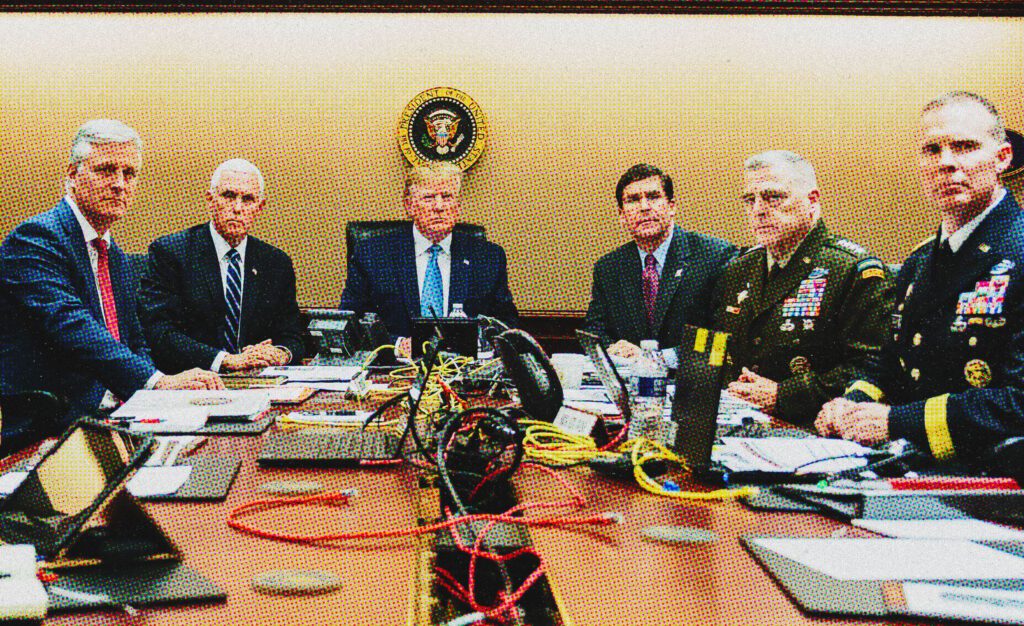
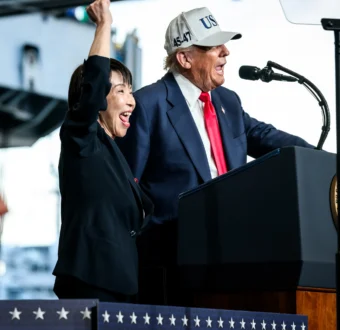



Don’t bring the war on terror to the Western Hemisphere